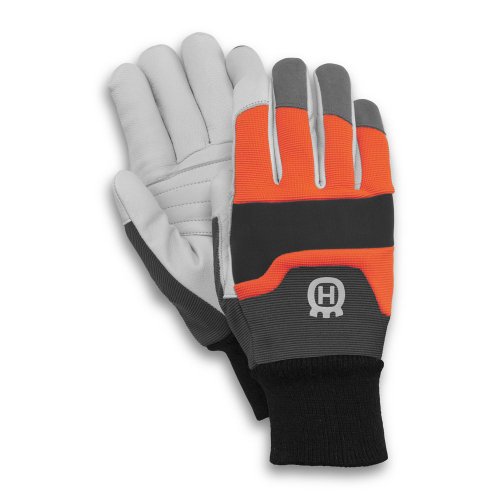eyolf
Addicted to ArboristSite
Being that I've never started an oil thread...
I needed to see an MSDS today, and found some for the mix oil I use while I was at it. The bottler (Citgo/Mystic) has recently begun changing their packaging, and has introduced some new products.
I have been using Citgo air cooled 2 stroke product, but when my last 3 quarts are gone I'm thinking of switching to the Personal watercraft/snomobile synthetic product. Looks like a winner from the MSDS:
Old oil:
Citgo/Mystic synthetic blend air-cooled OPE and snowmobile oils MSDS:
(Very similar to Echo powerblend bottled by Citgo)
Highly-refined petroleum lubricant oils
(CAS#: Various)
40 - 70%
Polybutene
(CAS#: 9003-29-6)
10 - 30%
Distillates (petroleum), hydrotreated light
(CAS#: 64742-47-8)
10 - 30%
Proprietary Ingredients
(Proprietary Mixture)
1 - 5%
New product is about $17/gallon:
Citgo/Mystik JT4 Synthetic PWC oil:
(Sno-mo oil is the same in a different bottle)
Highly-refined petroleum lubricant oils
CAS Various :
30 - 60%
Distillates (petroleum), hydrotreated light
(CAS #64742-47-8)
10 - 30%
1-Decene homopolymer, hydrogenated
(CAS# 68037-01-4)
10 - 30%
Polybutene
(CAS#9003-29-6 )
10 - 30%
Synthetic ester
(Proprietary)
10 - 30%
Proprietary Ingredients
(Proprietary Mixture)
1 - 5%
We probably now know what most of the ingredients are:
Refined oils are natural and can be separated from old dinosaur bones, while the hydrocracked oils are a simple synthetic made, largely, by tearing down complex molecules and replacing some parts with hydrogen atoms.
some Butenes are used because they oxidize readily, taking some of the other oils with them in the process (smoke reduction). We know about the esters' ability to fortify lubricity, shear resistance, etc, as well as their ability to keep things clean. At the end is the 1-5% of proprietary products, which are undoubdtedly the additive package.
The only part that puzzles me would be the 10% Decene: I'm not particularly familiar with that one, except to say that at 10 carbons it's a fairly light oil, probably about like Kerosene. The "ene" tells us its an alkene, with a double bond somewhere, probably on an end, so is likely a fairly good solvent, but they seem to want a lot of it if they are using it as a pour point depressant, and I'm sure its expensive. It might have some implications with keeping a dye in suspension too.
In the end I'm pointing out that the MSDS is useful for more than just what to do if some dummy eats the stuff. Lots of useful info.
I needed to see an MSDS today, and found some for the mix oil I use while I was at it. The bottler (Citgo/Mystic) has recently begun changing their packaging, and has introduced some new products.
I have been using Citgo air cooled 2 stroke product, but when my last 3 quarts are gone I'm thinking of switching to the Personal watercraft/snomobile synthetic product. Looks like a winner from the MSDS:
Old oil:
Citgo/Mystic synthetic blend air-cooled OPE and snowmobile oils MSDS:
(Very similar to Echo powerblend bottled by Citgo)
Highly-refined petroleum lubricant oils
(CAS#: Various)
40 - 70%
Polybutene
(CAS#: 9003-29-6)
10 - 30%
Distillates (petroleum), hydrotreated light
(CAS#: 64742-47-8)
10 - 30%
Proprietary Ingredients
(Proprietary Mixture)
1 - 5%
New product is about $17/gallon:
Citgo/Mystik JT4 Synthetic PWC oil:
(Sno-mo oil is the same in a different bottle)
Highly-refined petroleum lubricant oils
CAS Various :
30 - 60%
Distillates (petroleum), hydrotreated light
(CAS #64742-47-8)
10 - 30%
1-Decene homopolymer, hydrogenated
(CAS# 68037-01-4)
10 - 30%
Polybutene
(CAS#9003-29-6 )
10 - 30%
Synthetic ester
(Proprietary)
10 - 30%
Proprietary Ingredients
(Proprietary Mixture)
1 - 5%
We probably now know what most of the ingredients are:
Refined oils are natural and can be separated from old dinosaur bones, while the hydrocracked oils are a simple synthetic made, largely, by tearing down complex molecules and replacing some parts with hydrogen atoms.
some Butenes are used because they oxidize readily, taking some of the other oils with them in the process (smoke reduction). We know about the esters' ability to fortify lubricity, shear resistance, etc, as well as their ability to keep things clean. At the end is the 1-5% of proprietary products, which are undoubdtedly the additive package.
The only part that puzzles me would be the 10% Decene: I'm not particularly familiar with that one, except to say that at 10 carbons it's a fairly light oil, probably about like Kerosene. The "ene" tells us its an alkene, with a double bond somewhere, probably on an end, so is likely a fairly good solvent, but they seem to want a lot of it if they are using it as a pour point depressant, and I'm sure its expensive. It might have some implications with keeping a dye in suspension too.
In the end I'm pointing out that the MSDS is useful for more than just what to do if some dummy eats the stuff. Lots of useful info.
























































